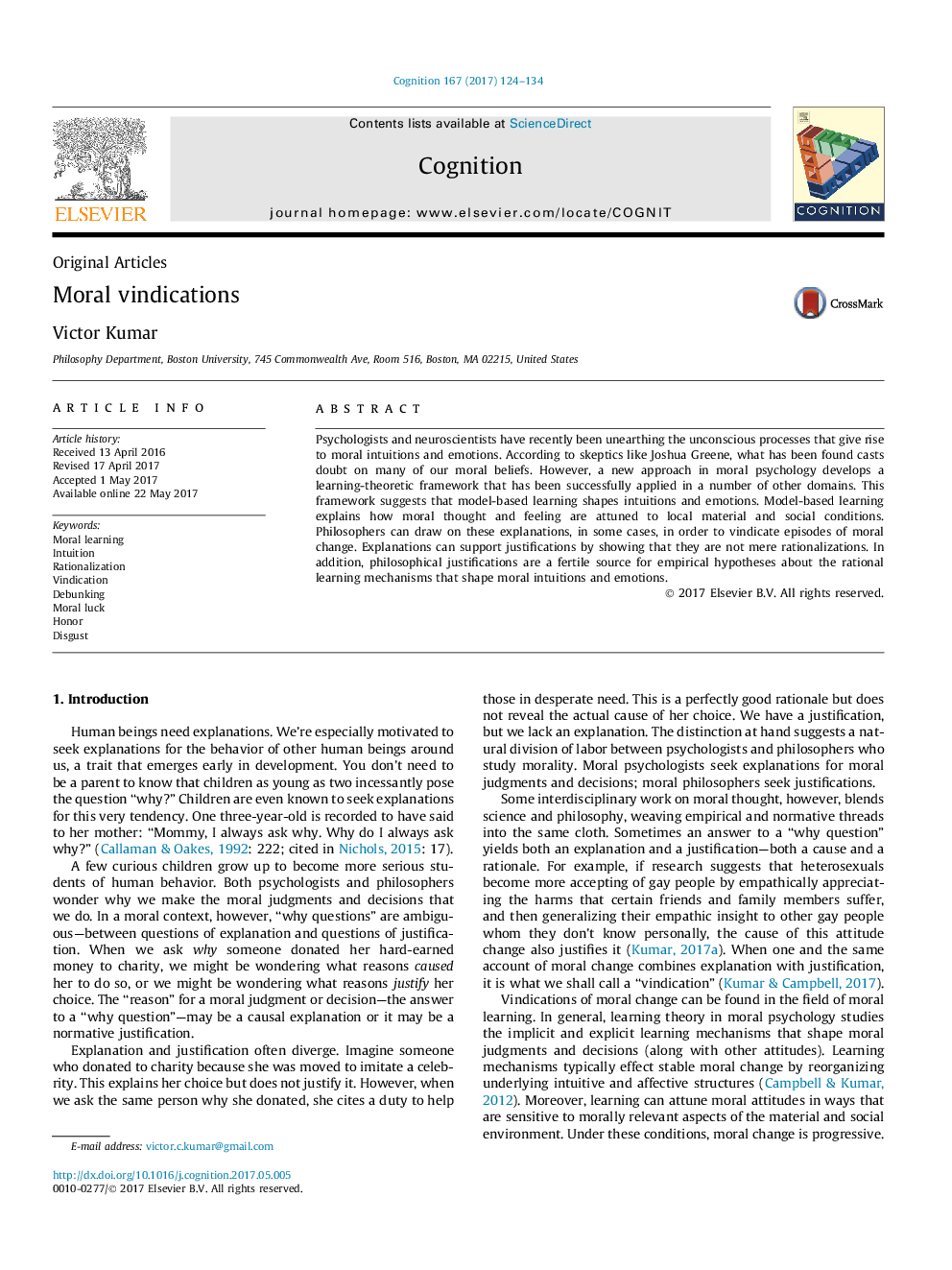| Article ID | Journal | Published Year | Pages | File Type |
|---|---|---|---|---|
| 5041484 | Cognition | 2017 | 11 Pages |
â¢Focuses critical lens on debunking arguments in moral psychology.â¢Articulates alternative vindicating arguments.â¢Applies learning theory to philosophical questions.
Psychologists and neuroscientists have recently been unearthing the unconscious processes that give rise to moral intuitions and emotions. According to skeptics like Joshua Greene, what has been found casts doubt on many of our moral beliefs. However, a new approach in moral psychology develops a learning-theoretic framework that has been successfully applied in a number of other domains. This framework suggests that model-based learning shapes intuitions and emotions. Model-based learning explains how moral thought and feeling are attuned to local material and social conditions. Philosophers can draw on these explanations, in some cases, in order to vindicate episodes of moral change. Explanations can support justifications by showing that they are not mere rationalizations. In addition, philosophical justifications are a fertile source for empirical hypotheses about the rational learning mechanisms that shape moral intuitions and emotions.
